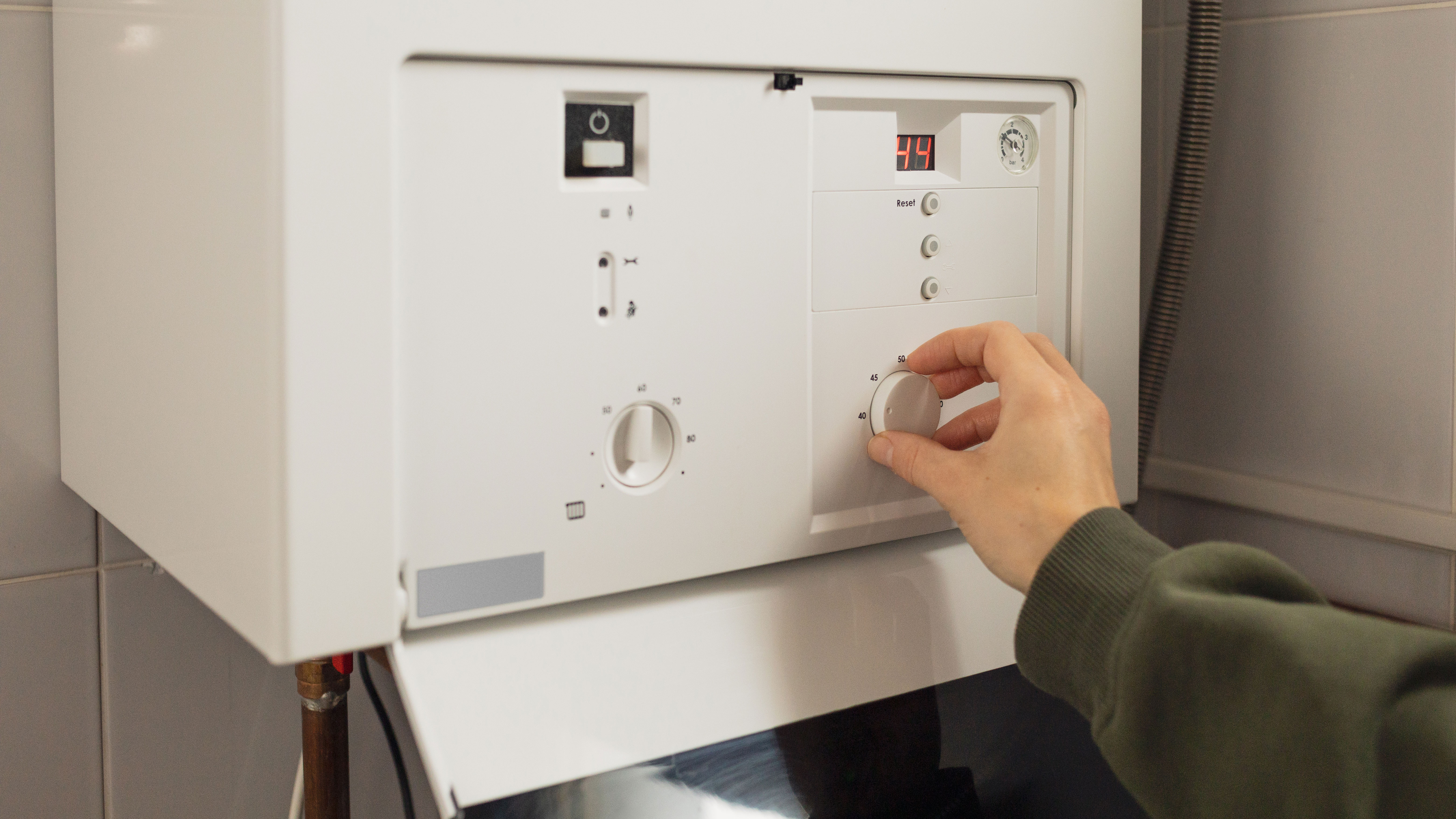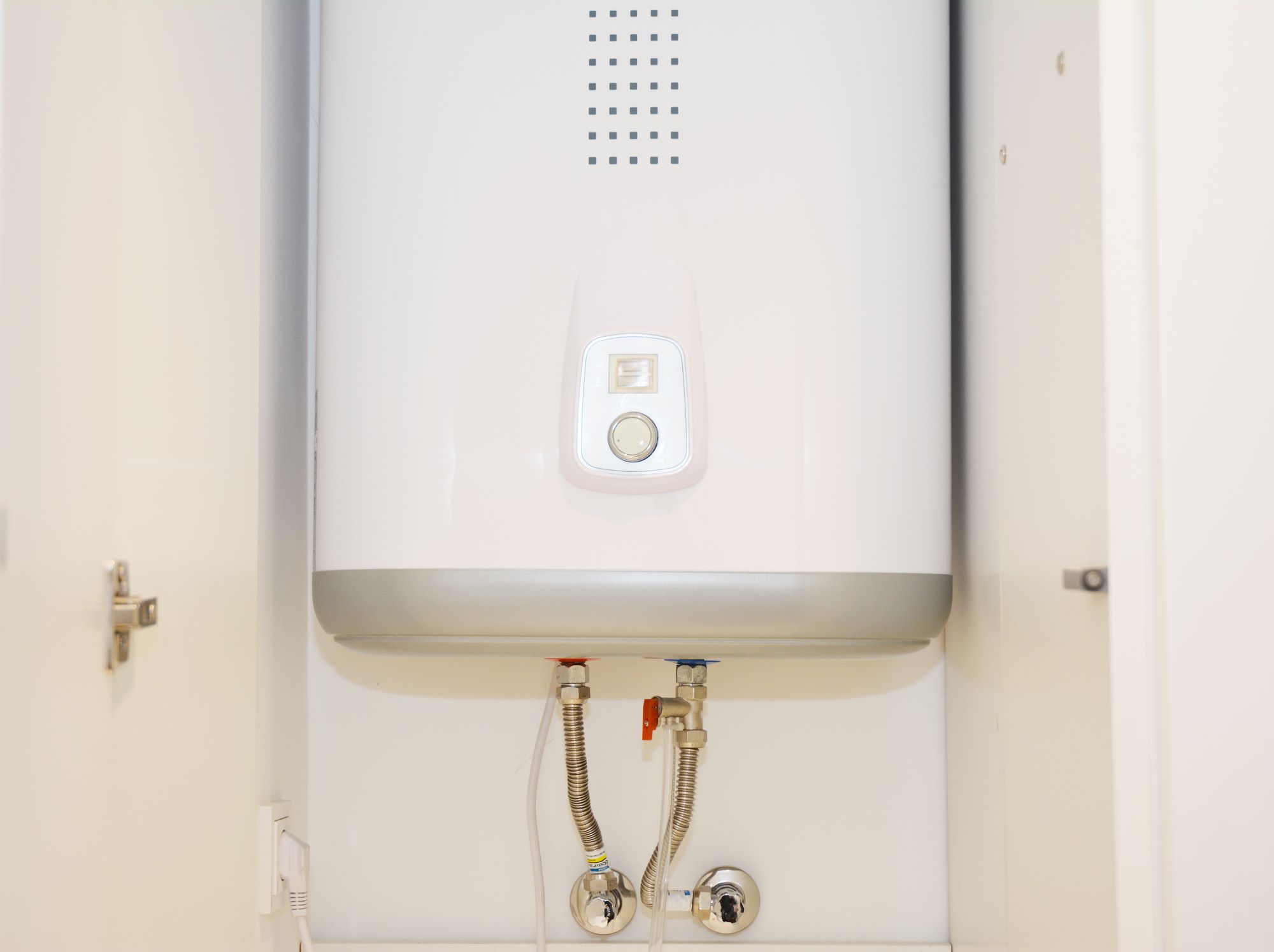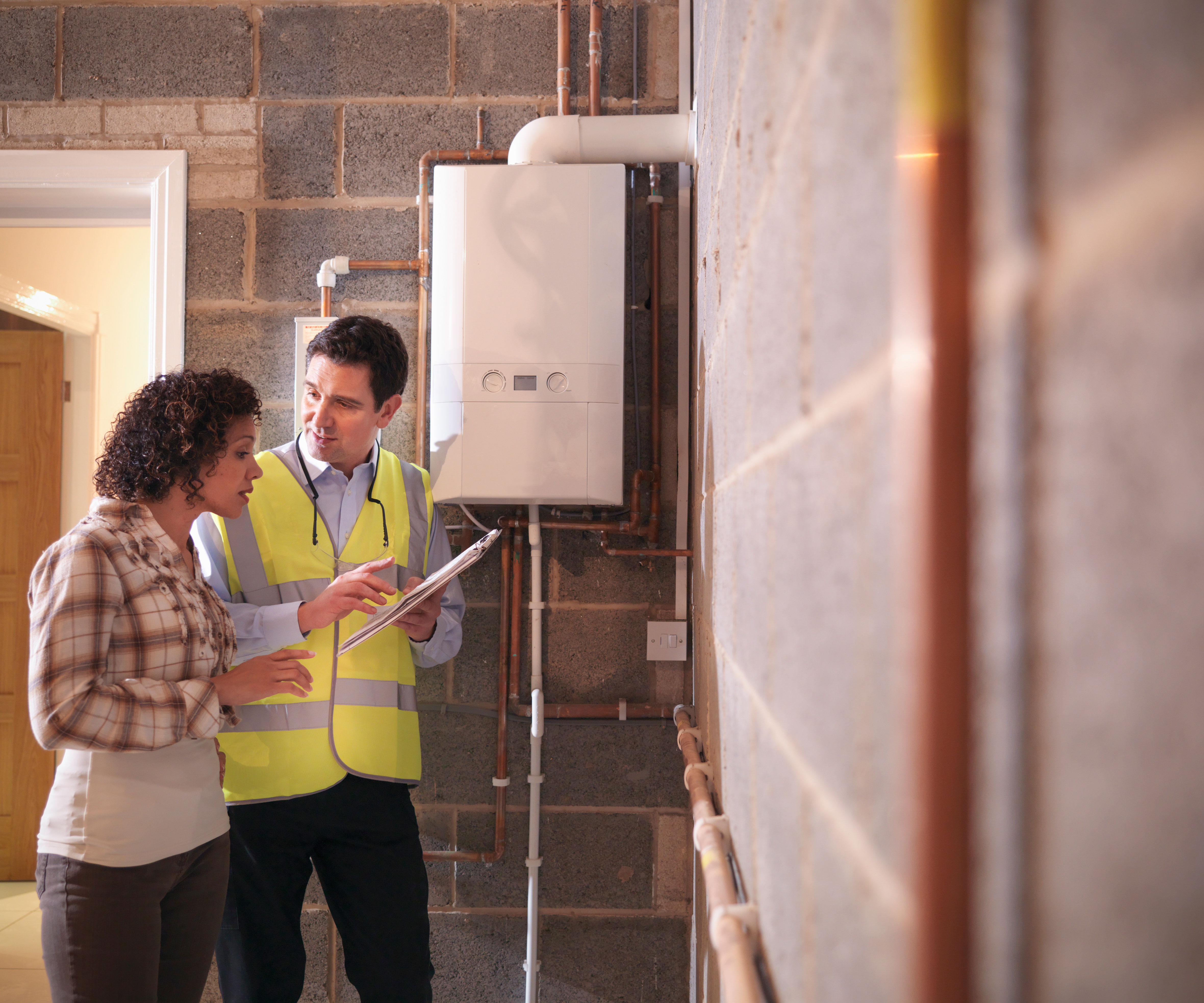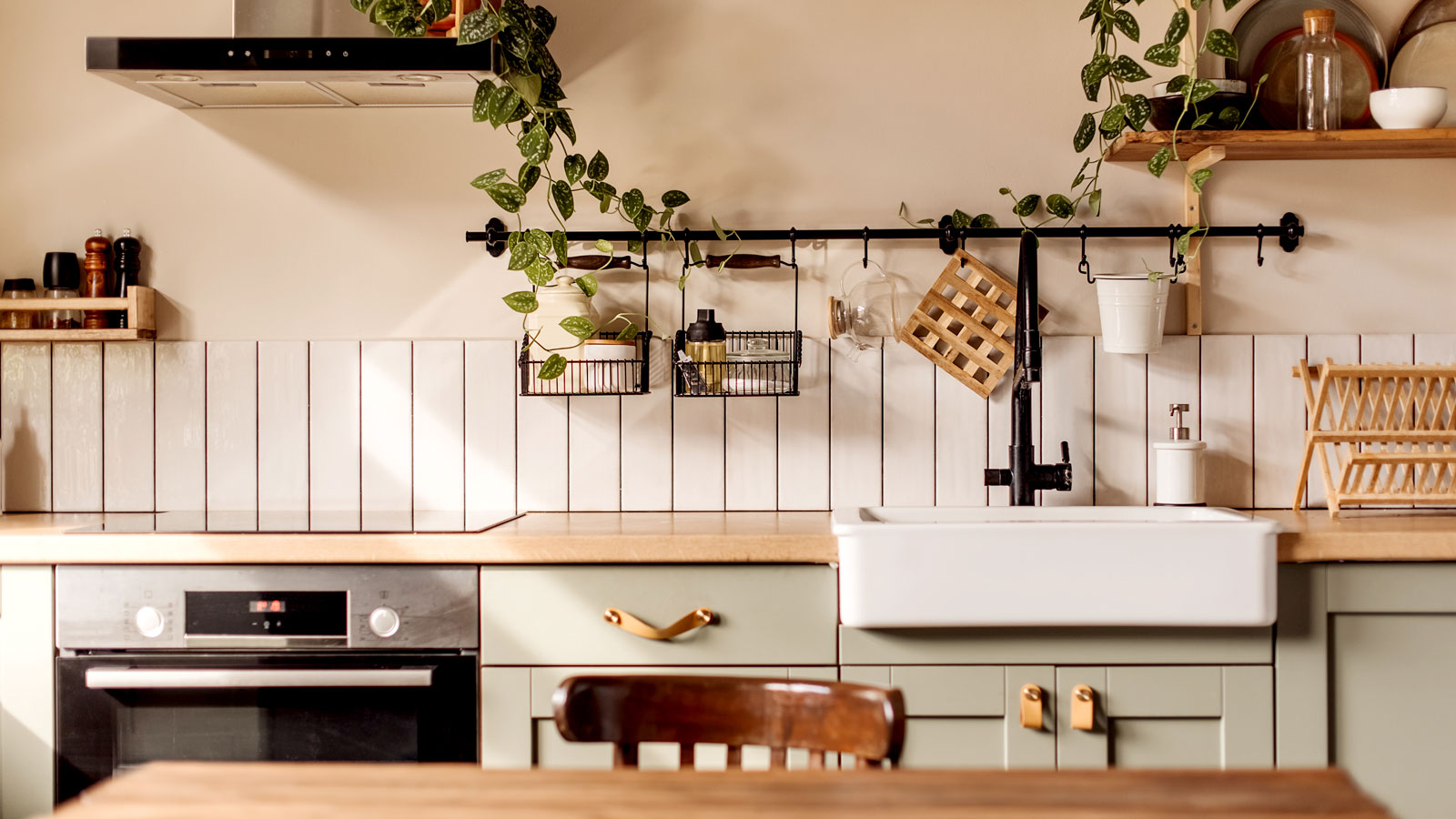Gas boiler vs electric boiler — is one better than the other?
Gas boiler vs electric boiler is a common comparison made by homeowners, keen to choose the best option for their homes. We asked the experts to compare the two

Bring your dream home to life with expert advice, how to guides and design inspiration. Sign up for our newsletter and get two free tickets to a Homebuilding & Renovating Show near you.
You are now subscribed
Your newsletter sign-up was successful
Choosing the best way to heat your home is not easy, but if you are comparing gas boiler vs electric boiler, we're here to help.
There are many types of boiler available to homeowners and whether you are considering a change due to rising energy prices or your existing model is on the verge of packing up, electric and gas versions are probably both on your radar.
"With the winter months approaching, the UK will now be gearing up their homes for the colder temperatures. The end of summer is a great time to consider investing in a new boiler, just before it will be needed for the winter," says James Longley, MD at Utility Bidder. "Gas and electric boilers are a recommended option for homes, however you should do your research and consider your lifestyle before purchasing."
We asked a range of experts for their opinions on both gas and electric boilers and have been exploring the pros and cons of each. This should help you come to a firm decision on the best option for your home, lifestyle and future needs.
How does each type of boiler work?
When choosing a new boiler it is important to understand a little bit about how they work. Let's begin with gas boilers.
Gas boilers
Despite being found in over 80% of homes in the UK, according to Viessmann, many people are still a little unsure of how they work. Like many other boilers, gas versions basically work by heating up water that is then passed into your home's heating system.
If you were to look inside a gas boiler you'd find a gas burner, which makes the heat, a heat exchanger, that transfers heat from a solid object into a fluid (such as water), the controls and a "diaphragm tank". These tanks make it possible for water to expand before absorbing any pressure surges that may occur during operation. In addition, gas boilers come with exhaust pipes that remove any carbon monoxide produced – hence why they require a flue.
Bring your dream home to life with expert advice, how to guides and design inspiration. Sign up for our newsletter and get two free tickets to a Homebuilding & Renovating Show near you.
Pros
- Cheaper to run
- Can meet the heating demands of all property types for hot water and heating
- Lots of options on the market
- Simple to replace
- All new gas boilers will be A-rated
Cons
- Not an option if your property is not connected to gas
- A flue running to the exterior of the property is needed
- Require annual servicing (although regular servicing is also recommended for electric boilers)
- More parts to go wrong over time

Electric boilers
Electric boilers are common in households with no gas connection, just like oil boilers. Unlike oil and gas boilers, however, they do not require a solid fuel. Instead, they transfer energy to the heating elements within it to heat water for your home.
Pros
- Quieter to run
- No risk of carbon monoxide leaks
- Any property can be fitted with an electric boiler
- Straightforward installation
- More eco-friendly than gas (although some electricity comes from fossil fuels)
- No flue required
Cons
- Some will struggle to heat larger properties
- More expensive to run
- Will switch off during a power cut
- Less industry support when something goes wrong
Energy efficiency
We'll start with the energy efficiency of both of these types of boiler – central heating efficiency being of particular concern for many homeowners right now.
"Electric boilers emit no exhaust fumes because they do not burn fossil fuels," explains Andy Kerr, founder at BOXT. "This means that none of the energy used to power the heating system is wasted. As a result, electric boilers often have the highest rating out of all the boilers available, especially when powered by renewable energy sources, like solar panels."
"It is now a requirement for all gas boilers to be A-rated for energy efficiency, meaning they must be at least 90% efficient," continues Andy. "Gas boilers can also cope with larger heating and hot water demands, meaning that they tend to be more efficient than electric boilers in bigger homes.
"Although an electric boiler may be more efficient, a gas boiler would be advantageous for all homes that have a gas supply as they are able to generate heat more effectively and cost less to run."

Andy is founder and CEO of BOXT, a multi award-winning online platform designed to revolutionise the way heating systems are installed in homes. Founded in 2017, within six months from launch, BOXT became the UK’s second largest boiler installer, and has provided over 3 million online quotes across the product range, with a nationwide network of over 10,000 installers.
Running costs
One of the main considerations most homeowners will take into account when choosing a new boiler is cost – both in terms of initial purchase price as well as running costs. So how much is a new boiler?
"The price of electric boilers can range from £900 to around £4,000, whereas gas boilers can range from around £500 to over £6,000, making them more expensive," advises James Longley. "However, this is often due to the installation process taking longer compared to an electric boiler.
"Under the current government energy price cap, the cost of electricity in the UK is £28.62p per kWh, whereas gas is £7.42p per kWh," continues James. "Amounts can vary depending on the size of your home but, as an example, you’ll be spending £1.78 per hour for 24kWh of gas, compared to £3.43 per hour for 12kW of electricity."
"In general, the cost of operating an electric boiler would be two to three times more than that of a gas boiler," adds Anthony Smith, director at Midland Air Conditioning.
However, there are advantages electric boilers have over gas when it comes to costs.
"With fewer moving parts, you're less likely to spend a lot maintaining an electric boiler," points out Andy Kerr. "So, while they can be more expensive to run, you could save money in the long term due to reduced maintenance costs."

James Longley is Managing Director and Founder of Utility Bidder, an award-winning business energy consultancy in the UK. He primarily manages supplier relations, as well as helping with new business opportunities. James has nearly two decades of experience under his belt in the energy sector, and has since expanded to launch the 'James Longley Group' in 2024 - where ambitious business owners can seek to maximise their growth with James' help.

Anthony Smith is the director of Midland Air Conditioning Ltd, a trustworthy air conditioning, solar panel and EV charger provider offering installation, maintenance and repair services in the West Midlands. Anthony has over 28 years of experience in the HVAC industry.
Ease of installation
Boiler installation is something that needs careful consideration, particularly if you are renovating and are keen to minimise disruption to your day-to-day life. It seems that electric boilers win first place here perhaps explaining, in part, why they are often considered one of the best gas boiler alternatives.
"Generally speaking, installing an electric boiler is slightly more straightforward than a gas boiler, and the process should only take 1-3 days in most cases," explains Andy Kerr. "This is because electric boilers do not need to be connected to the main gas supply or need a condensate pipe or flue to be fitted. However, they will still need all the associated pipework for your heating and hot water requirements."
"Installation costs for both will depend on different factors, such as property size, location and the rates of the engineer," picks up James Longley. "Both heating systems tend to take 1-3 days to install, however, a gas boiler may take longer due to more complex installations."
"The work with a has boiler must also be carried out by a Gas Safe registered engineer who can complete the job safely and to a high standard," points out Andy Kerr. "The same stands with an electrical boiler as this will need connecting and testing by an engineer with the relevant qualifications."

Boiler maintenance
Most people will be keen to install a heating system with minimal maintenance requirements, whether that means opting for a combi boiler or a system boiler. So are electric or gas boilers better on this front?
"Gas boilers require a higher level of maintenance and servicing as they are more susceptible to wear and tear," says Andy Kerr. "Boiler manufacturers recommend having a boiler service once every 12 months, ideally before the colder weather begins in autumn, so that you can make sure it’s in good working order come wintertime. In fact, you may well find that your boiler’s warranty isn’t valid if you fail to get it serviced annually, which could end up costing you significantly more in repairs should anything go wrong."
Safety
It is natural to feel concerned about the safety aspects of any boiler and when comparing gas and electric boilers, it seems that electric once again has the edge.
"Because electric boilers don’t directly use fossil fuels, there’s no need to worry about any gas leaks; however, ignoring problems with these boilers can still lead to issues and inefficiencies, so it’s important you ensure your boiler is properly maintained and regularly serviced," explains Andy Kerr. "Gas boilers can be more efficient, especially in larger properties; however, they do present more of a risk when it comes to safety. If there is a gas leak in your boiler, there is a significant chance of carbon monoxide poisoning.
"With this in mind, an electric boiler might be considered safer. However, it’s good to know that building regulations require a carbon monoxide alarm to be installed in every room containing an appliance that burns fuel," concludes Andy.
Longevity
Just as with ground source heat pumps, a boiler is a significant investment so you will no doubt be keen to ensure that whichever type you end up installing is going to last you for many years to come.
"Depending on the boiler's quality, electric boilers will typically last between 15 and 25 years," states Andy Kerr. "Electric boilers typically last longer than gas due to not having as many parts that make up the appliance. As a result, fewer problems are likely to occur, from general wear and tear to specific issues with parts.
"By comparison, a natural gas heating system will likely last 10-15 years," continues Andy. "This is due to the increased complexity of gas appliances. Some types of gas boilers may have a slightly longer lifespan, but electric boilers will last longer than their counterparts."
FAQs
Are electric boilers suitable for larger homes?
Electric boilers tend to work best in smaller properties.
"Electric boilers are commonly found in smaller homes for a reason: because they manage the demand without the running costs becoming too high," explains Andy Kerr.
"If you live in a smaller house or in an apartment but you still want efficiency, electric boilers are the most economical choice," explains Anthony Smith. "Your running cost is likely to be higher, but electric boilers have the highest efficiency rating since they do not emit any exhaust fumes. In other words, you get what you pay for since there is no energy waste."
Still undecided? Remember, gas and electric boilers are not your only option. If you are living off-grid or are interested in greener ways of heating you home, take a look at biomass boilers in our beginner's guide.
Natasha was Homebuilding & Renovating’s Associate Content Editor and was a member of the Homebuilding team for over two decades. In her role on Homebuilding & Renovating she imparted her knowledge on a wide range of renovation topics, from window condensation to renovating bathrooms, to removing walls and adding an extension. She continues to write for Homebuilding on these topics, and more. An experienced journalist and renovation expert, she also writes for a number of other homes titles, including Homes & Gardens and Ideal Homes. Over the years Natasha has renovated and carried out a side extension to a Victorian terrace. She is currently living in the rural Edwardian cottage she renovated and extended on a largely DIY basis, living on site for the duration of the project.

